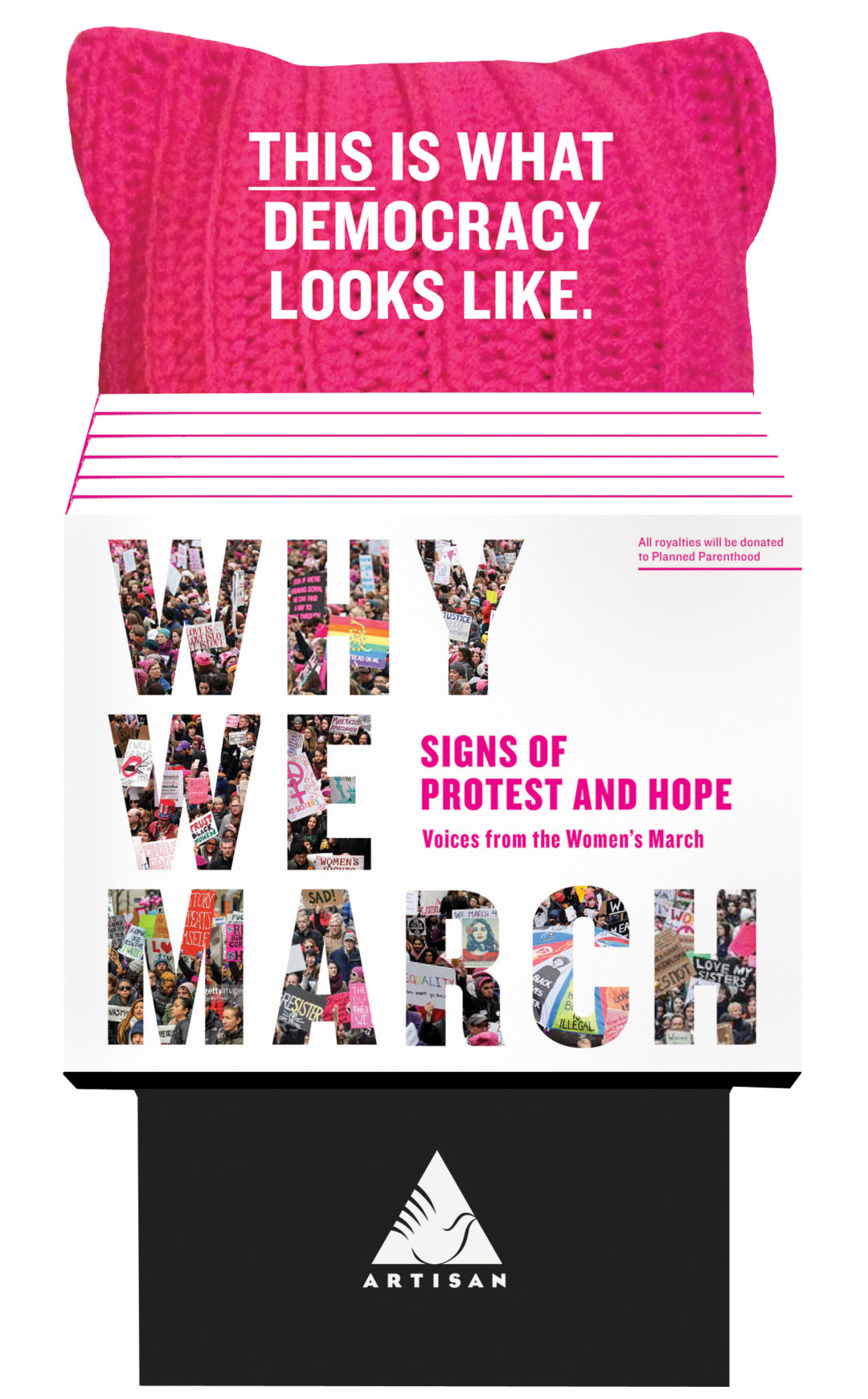ARTISAN TO PUBLISH “WHY WE MARCH: SIGNS OF PROTEST AND HOPE—VOICES FROM THE WOMEN’S MARCH” WITH ALL ROYALTIES TO BENEFIT PLANNED PARENTHOOD
Lia Ronnen, publisher of Artisan, today announced the publication of Why We March: Signs of Protest and Hope—Voices from the Women’s March (On sale March 7, 2017; Trade Paperback Original; $14.95; 264 pages / 500 color photographs; ISBN: 9781579658281). The book, a striking collection of 500 of the most inspiring, humorous, and provocative signs from the Women’s March on Washington and the 673 “sister marches” that took place across the globe, will be a source of hope for women from all walks of life and a meaningful gift for Mother’s Day and graduation. All royalties will be donated to Planned Parenthood.
On January 21, 2017, over 5 million people gathered for the Women’s March, one of the largest one-day demonstrations in recorded history. Marchers carried signs that shone with unwavering hope and determination and demanded the protection of women’s rights, opposed the newly inaugurated U.S. president, and championed equality and justice for all. The marches took place in all fifty states, from Washington, D.C., to Fairbanks, Alaska, and on every continent, from Paris and Nairobi, to Lima and Calcutta, to Melbourne and Antarctica, and more. The hashtag #WomensMarch has been used more than 14 million times across Twitter, Facebook, and Instagram.
Why We March presents 500 of the most powerful and creative signs from these marches. “Make America Think Again.” “Build Bridges, Not Walls.” “Girls Just Wanna Have Fundamental Rights.” “Love Trumps Hate.” “A Woman’s Place Is in the Resistance.” And more. These images—featuring messages about reproductive rights and cabinet picks, immigration and police violence, climate change and feminism—together paint a powerful portrait of resistance, despair, humor, and most of all, hope. The commitment, energy, and profound emotion of these marches are captured in 500 full-color images of signs carried by women and men around the world—across ages, ethnicities, religious beliefs, sexual orientations, economic statuses, and gender identities. Scheduled for publication during Women’s History Month, less than two months after the marches, this book will serve as a rallying cry for a burgeoning movement, and a valuable and timely encapsulation of an unprecedented moment in political history.
“We at Artisan were moved both by the passion of those who marched and by how powerfully they expressed their feelings in the signs they carried,” says Ronnen. “Why We March will preserve that unique moment, keep the momentum going, and inspire future marchers.”
Contact: Allison McGeehon, 212-614-7705; allisonm@artisanbooks.com


